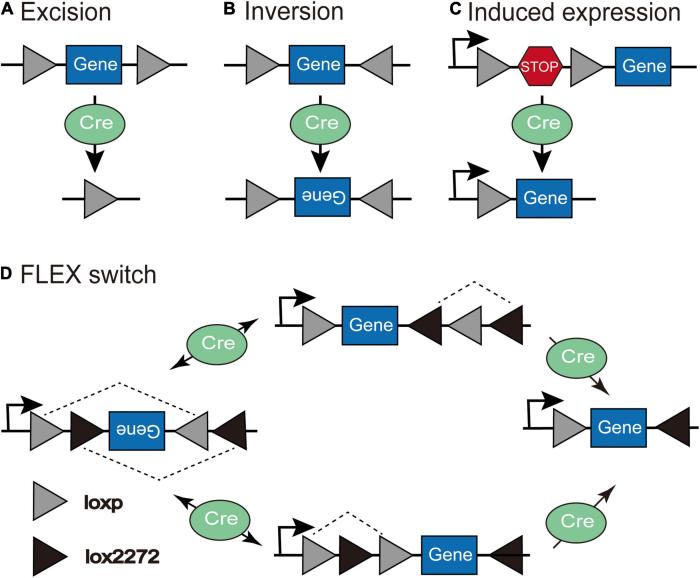
CRE tenant experience platforms are revolutionizing the way tenants interact with their properties and landlords. These innovative tools are designed to enhance tenant engagement and satisfaction by streamlining communication, providing essential services, and implementing smart home technologies, making the rental experience more enjoyable and efficient.
As the landscape of commercial real estate evolves, understanding the value of these platforms becomes crucial for both landlords and property managers. With features that cater to diverse tenant needs, these platforms are not just about convenience; they represent a significant shift in how real estate entities approach tenant relationships.
Overview of CRE Tenant Experience Platforms

CRE tenant experience platforms are innovative tools designed to enhance the living and working conditions for tenants, while simultaneously aiding landlords and property managers in efficiently managing their properties. The primary purpose of these platforms is to create a seamless interaction between tenants and property management, fostering a sense of community and engagement.Key features of CRE tenant experience platforms include user-friendly interfaces, comprehensive communication tools, and personalized service offerings.
These features add significant value to both tenants and landlords, as they streamline processes such as maintenance requests, community event planning, and payment systems. Furthermore, by enhancing tenant engagement through real-time feedback and personalized experiences, these platforms significantly improve tenant satisfaction.
Benefits of Implementing Tenant Experience Platforms
Implementing tenant experience platforms offers numerous advantages for landlords and property managers. Here are some noteworthy benefits:
- Enhanced tenant retention through improved satisfaction levels.
- Better communication channels that facilitate quick resolutions to tenant issues.
- Increased occupancy rates as a result of positive tenant experiences and recommendations.
For instance, properties utilizing tenant experience platforms often report higher occupancy rates due to their ability to quickly address tenant concerns and provide value-added services. Additionally, the data analytics capabilities of these platforms inform property management decisions, allowing managers to assess tenant needs and preferences, ultimately leading to strategic improvements in services offered.
Integration with Smart Home Technologies
The integration of smart home technologies with tenant experience platforms is becoming increasingly prevalent. This relationship enhances the overall tenant experience by providing convenience and personalization. Smart home features, such as automated lighting, climate control, and security systems, can be controlled through tenant experience apps, making it easier for residents to manage their living environments.Examples of smart home technologies that can be incorporated into tenant experience platforms include smart thermostats, advanced security systems, and voice-activated assistants.
These innovations not only provide comfort but also promote energy efficiency, aligning with modern tenants’ preferences for sustainability.
Impact on Commercial Real Estate
Tenant experience platforms are significantly reshaping the landscape of commercial real estate. Traditional property management practices often lack the interactive components that modern tenants expect. By adopting tenant experience platforms, property managers can transition from a reactive to a proactive management style, fostering better relationships with tenants.Comparative studies showcase how properties using these platforms achieve higher tenant retention rates and more positive reviews than those relying solely on conventional practices.
Success stories from commercial properties highlight the advantages of utilizing tenant experience platforms, demonstrating increased engagement and profitability.
Trends in the Real Estate Market Influenced by Tenant Experience
Current market trends are driving the demand for tenant experience platforms, particularly as younger demographics enter the rental market. These groups prioritize convenience, personalization, and a strong sense of community, which are all facilitated by tenant experience platforms.Demographic shifts, such as the rise of millennials and Gen Z renters, are changing tenant expectations in real estate, leading to a greater emphasis on technology and seamless experiences.
The future outlook for tenant experience platforms is promising, as they continue to evolve alongside market demands and tenant preferences.
Luxury Homes and Tenant Experience
Tenants in the luxury real estate sector have unique needs and expectations that require tailored solutions. Luxury property developers are increasingly customizing tenant experience platforms to cater to these high-end clients, ensuring that amenities and services meet their sophisticated tastes.Methods for tailoring tenant experience platforms to luxury properties include integrating high-end amenities like concierge services, private event spaces, and exclusive access to local luxury experiences.
This level of personalization enriches the tenant experience, ensuring satisfaction and loyalty among residents.
Creating a Seamless Tenant Journey
Designing an effective tenant onboarding process is crucial for establishing a positive first impression. Essential steps include:
- Creating a user-friendly onboarding interface.
- Providing comprehensive resources and guides for new tenants.
- Implementing feedback mechanisms to continuously enhance tenant experiences.
Community engagement features within tenant experience platforms also play a vital role in fostering connections among residents, facilitating a sense of belonging and encouraging participation in community activities.
Future Innovations in Tenant Experience Platforms
Emerging technologies are poised to revolutionize tenant experience platforms. Artificial intelligence and machine learning can analyze tenant behavior, providing personalized recommendations and automating routine interactions. This level of personalization enhances tenant engagement and satisfaction.Moreover, the importance of cybersecurity and data protection cannot be overstated. As tenant experience platforms integrate more personal data and smart technologies, ensuring robust security measures will be vital for maintaining tenant trust and safeguarding sensitive information.
Epilogue
In conclusion, the integration of CRE tenant experience platforms is undoubtedly transforming the commercial real estate sector. By enhancing tenant satisfaction and optimizing property management through innovative technology, these platforms offer a promising future for both tenants and landlords alike. As we look ahead, the continued evolution of these tools will likely shape the expectations of tenants and redefine the standards of property management.
Popular Questions
What are CRE tenant experience platforms?
These platforms are digital tools designed to improve tenant engagement and satisfaction in commercial real estate through enhanced communication and service features.
How do these platforms benefit landlords?
Landlords can increase occupancy rates, gain valuable insights through data analytics, and provide better tenant services, leading to improved retention.
Can tenant experience platforms integrate with smart home technologies?
Yes, many platforms can incorporate smart home features to enhance convenience and comfort for tenants, creating a modern living experience.
What are the trends influencing tenant experience platforms?
Demographic shifts, technological advancements, and rising tenant expectations are driving demand for more sophisticated tenant experience solutions.
How can feedback improve tenant experience platforms?
Leveraging tenant feedback allows property managers to continuously refine and enhance platform features, ensuring they meet the evolving needs of tenants.





